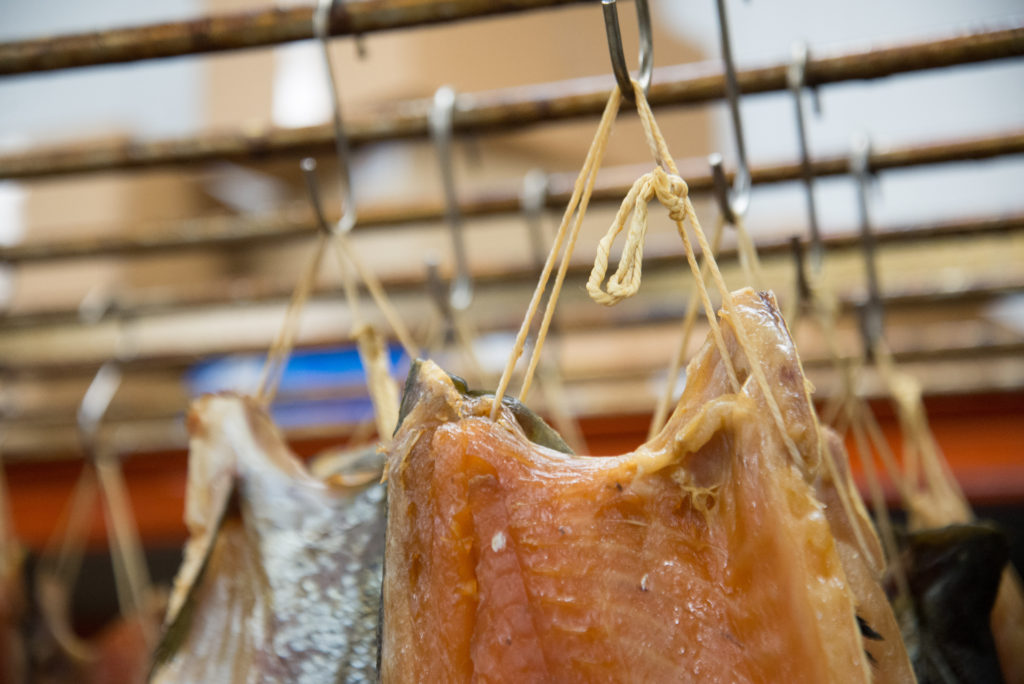Smoked salmon, once seen as a luxury food on the same level as caviar, is now available everywhere, but don’t be fooled by cheap imitations, says Nick.
“Our old factory was roughly where the centre of the running track is now,’ says Lance Forman gesturing through the window in the direction of the site of the London 2012 Olympic games, a few hundred metres away.
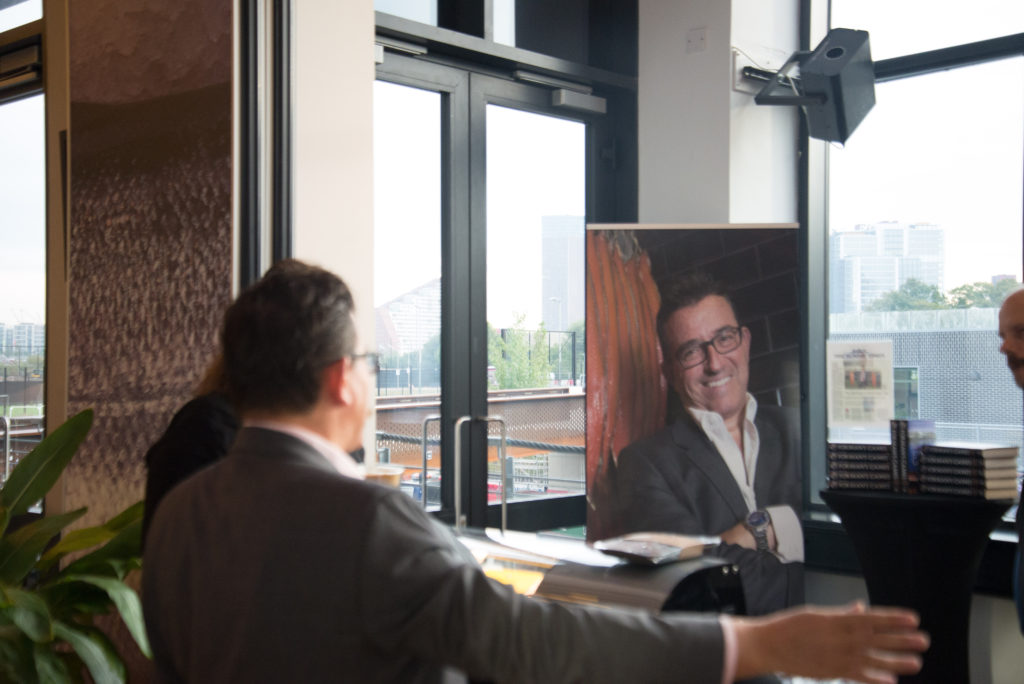
It’s evidently still something of a sore point with him how, after over a century in the same place, the family firm of H.Forman was forced to move out so a wrecking ball could come crashing down.
Still, it wasn’t all bad news. Their new place is rather spiffing; a salmon pink, state of the art, purpose built, curing and smokehouse facility that would probably have delighted Lance’s great grandfather Harry (Aaron) Forman who came to London from Russia at the start of the last century.
Back then Jewish emigres longed for tastes of home, and so seeing a good business opportunity Harry starting importing salmon in barrels of brine all the way from the Baltic.
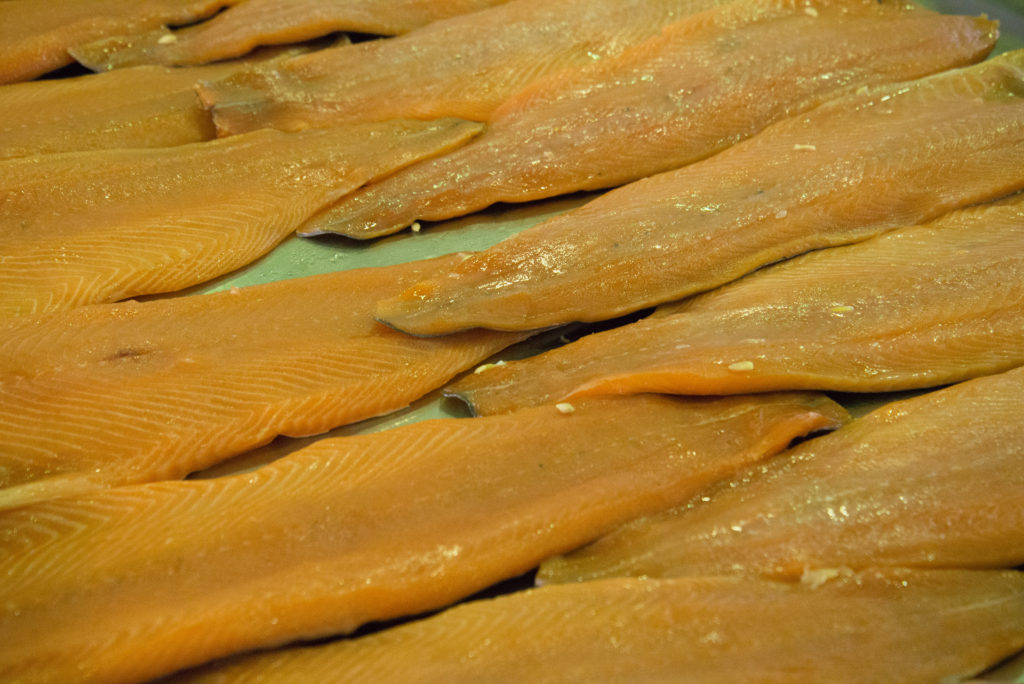
Then discovering a better, closer, source of high-quality salmon in Scotland, one that didn’t need to travel hundreds of miles and so didn’t need brining, he began curing and smoking that salmon instead.
His mild’London Cure’ brought him almost immediate acclaim and lots of business from the more discerning and wealthy customers.
‘The thing about proper smoked salmon is that it shouldn’t actually taste of smoke,’ Lance tells me, leading the way into the room where whole salmon are being prepped, a job that starts every day around 4 a.m and is done entirely by hand to avoid bruising.’The smoke and the cure are really a preservative,’ he adds,’the flavour should always come from the salmon’.
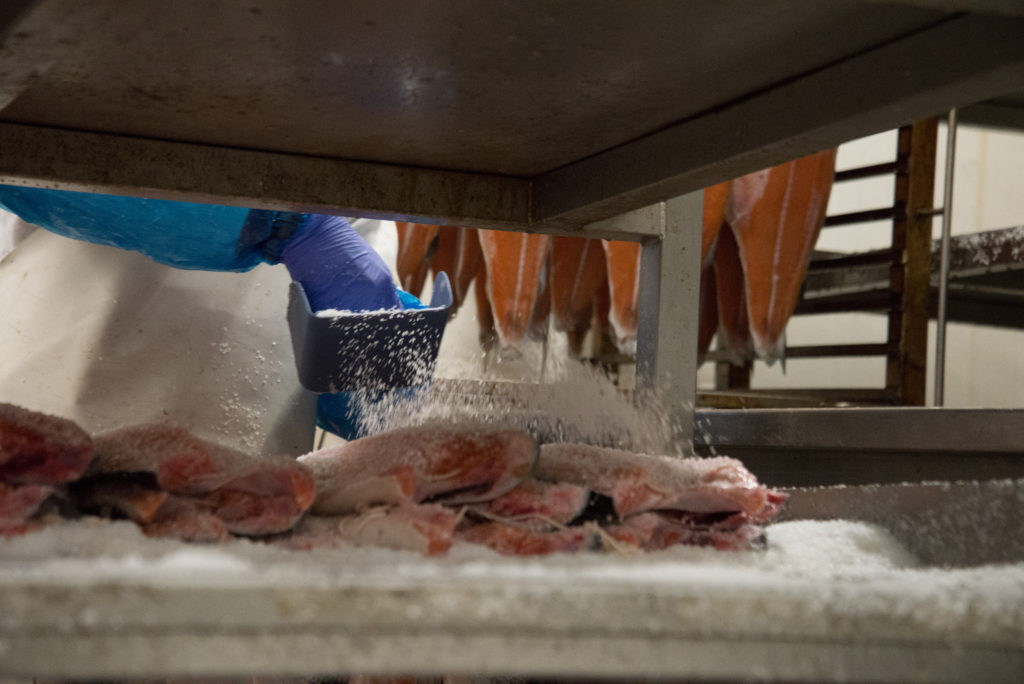
The arriving salmon are swiftly cleaned and split in half, then sprinkled with rock salt before being hung up to dehydrate. Hanging while curing stretches the flesh, helping tenderise it.
“Inferior smoked salmon producers skimp on the curing,’ says Lance, shaking his head mournfully.’It means their smoked salmon contains a lot of water, and the customer is paying by weight. So basically customers can be buying a lot of expensive water.’
The drying process causes the surface of the fish to become tacky, and once in the kiln this encourages the smoke particles to stick to it.’Smoke is basically a cloud of tiny particles, so when it sticks to the fish it creates a barrier that forms a seal against bacteria.’
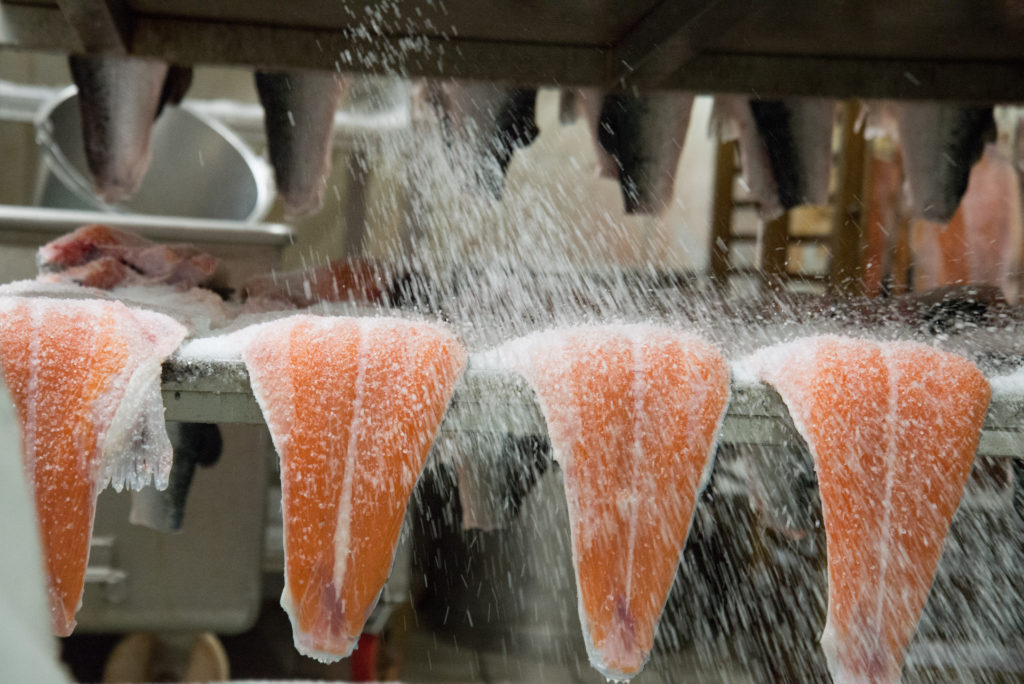
Interestingly, the smoke does not come from burning sawdust as was once the case. When they set up this new factory Lance wanted a new method, as there’d once been a bad fire at the old place and he understandably wanted to avoid any chance of a repeat occurrence.
Instead, Forman’s state of the art German kilns use friction to make the smoke. Lengths of whole oak are rubbed by fast spinning metal wheels and that friction creates the heat which creates the smoke.
There’s almost no chance of it catching fire,’although there is a sprinkler system inside just in case,’ Lance points out cheerfully.
The smoked salmon then has its crusty pellicule cut off.’Again, some dodgy producers will leave it on to add weight,’ says Lance, ‘but also if it’s left on when you slice the salmon you take some of that crust into the flesh which can give a nasty, bitter taste.’
Some of the salmon will then be sent out as whole sides, but Forman’s also slice it for customers – the classic D-Cut or Banquet cut – then reshape the slices before sending out.
Forman’s Darren Matson holds the World Record for trimming, pin boning and slicing a side of smoked salmon and he does a demo for us, his knife moving precisely and effortlessly at remarkable speed.
Speed matters because Forman’s believe smoked salmon should ideally be eaten the same day it leaves the kiln. Fleets of refrigerated vans are dispatched constantly to customers eagerly awaiting their delicious cargo.
‘Smoked salmon was once seen as a real luxury treat,’ says Lance as we try some of his marvellous product upstairs in the Forman’s restaurant.’Nowadays it’s readily available but it’s not worth buying the cheap stuff. It’s just not the real thing.’
In fact, as a badge of how genuine, original and unique Forman’s smoked salmon is, it has had Protected Geographical Indication (PGI) status since 2017, the same protected status as enjoyed by Champagne, Parma Ham and Scotch Beef.
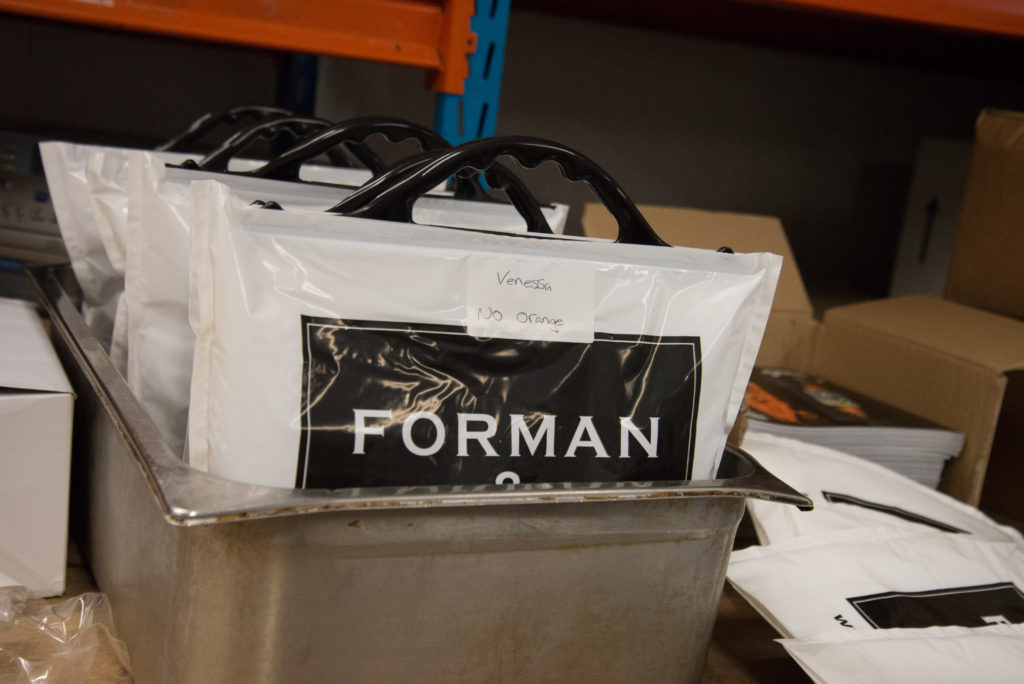
So don’t be ripped off with inferior smoked salmon barely worthy of the name.
Choose Forman’s and know you’re getting the genuine London Cure all the way from East London.
Buy Forman’s smoked salmon from Forman & Field and from some supermarkets
Click and collect direct from the Forman’s smokehouse deli at H. Forman & Son, Stour Road, Fish Island, London, E3 2NT
Eat it at Forman’s restaurant

